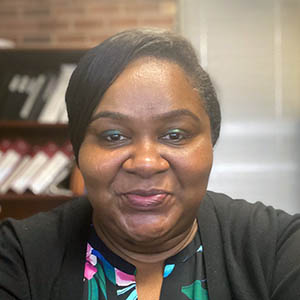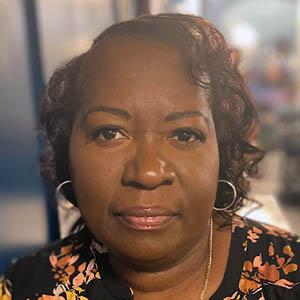Title III
Title III of the Higher Education Act of 1965 is a federally funded program designed to support the infrastructure of Historically Black Colleges and Universities (HBCU) and other institutions serving a high number of low-income students.
The mission of Title III programs is to ensure that federal resources are effectively and efficiently used to assist the university in becoming self-sufficient and expanding its capacity to serve low-income students. The funds are provided to improve and strengthen the university's academic quality, institutional management, fiscal stability and student service outcomes.
STAFF

Title III Director
(910) 672-1073
ccooper3@uncfsu.edu

Title III Grants Accounting
(910) 672-2114
vlivings@unfsu.edu
RESOURCES
Legislation:
US Department of Education: For more information on eliglibity requirements, awards, performance, laws and regualtions pertaining to Title III Part B and other federal grants.
Regulation:
WhiteHouse.Gov: for more information on the manageent and budget practices that govern Title III spending.
US Department of Education: for more information on agency specific regulations pertaining to Title III Part B.
National Association of HBCU Title III Administration, Inc.
If you would like to learn more about the purpose and history of HBCUs, Click here
- Purchase, rental, or lease of scientific or laboratory equipment for educational purposes, including instructional and research purposes;
- Construction, maintenance, renovation, and improvement in classroom, library, laboratory, and other instructional facilities, including purchase or rental of telecommunications technology equipment or services;
- Support of faculty exchanges, faculty development and faculty fellowships to assist in attaining advanced degrees in their field of instruction;
- Academic instruction in disciplines in which African Americans are underrepresented;
- Purchase of library books, periodicals, microfilm, and other educational materials;
- Tutoring, counseling, and student service programs designed to improve academic success;
- Funds and administrative management, and acquisition of equipment for use in strengthening funds management;
- Joint use of facilities, such as laboratories and libraries;
- Establishing or improving a development office to strengthen or improve contributions from alumni and the private sector;
- Establishing or enhancing a program of teacher education designed to qualify students to teach in a public elementary or secondary school in the State that shall include, as part of such program, preparation for teacher certification;
- Establishing community outreach programs which will encourage elementary and secondary students to develop academic skills and the interest to pursue postsecondary education; and
- Establishing and maintaining an institutional endowment to facilitate financial independence.
- Purchase, rental, or lease of scientific or laboratory equipment for educational purposes, including instructional and research purposes;
- Construction, maintenance, renovation, and improvement in classroom, library, laboratory, and other instructional facilities, including purchase or rental of telecommunications technology equipment or services;
- Academic instruction in disciplines in which Black Americans are underrepresented;
- Purchase of library books, periodicals, microfilm, and other educational materials, including telecommunications program materials;
- Establishing or enhancing a program of teacher education designed to qualify students to teach in a public elementary or secondary school in the State that shall include, as part of such program, preparation for teacher certification, and
- Other activities, consistent with the institution’s comprehensive plan and designed to increase the institutions capacity to prepare students for careers in the physical or natural sciences, mathematics, computer science or information technology or sciences, engineering, language instruction in the less-commonly taught languages or international affairs, or nursing or allied health professions.
Equipment Inventory Report (DOCX)
Title III- Part B- Phase II Application (DOCX)
Title III- Part F- Phase II Application (DOCX)
Title III Phase II Application Instructions (PDF)
TITLE III Monthly Schedule (DOCX)
Quarterly Reports
New 1st Quarter report 24-25 (DOCX)
New 2nd Quarter report 24-25 (DOCX)
New 3rd Quarter report 24-25 (DOCX)
New Year-End Report 24-25 (DOCX)
New 1st Quarter report 25-26 (DOCX)
New 2nd Quarter report 25-26 (DOCX)
